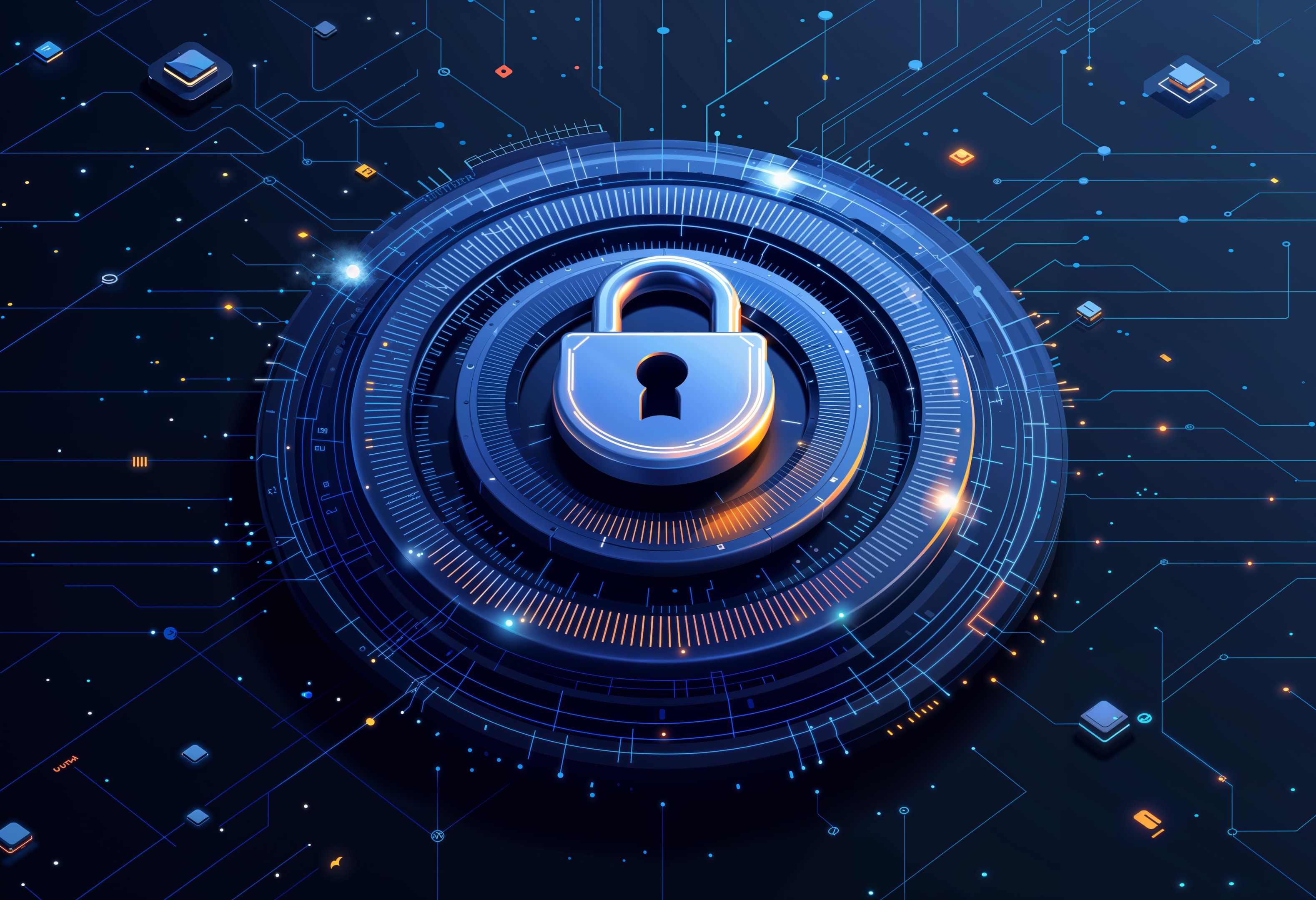Essential Guide…
- Home
- Computer Security
- Cybersecurity Consulting:…
Cybersecurity is no longer a matter of “if” a breach will happen but “when” it will happen. As our digital ecosystems evolve, so do the threats. The challenge isn’t just about plugging holes; it’s about understanding the deeper shifts in technology and the human behaviors driving cyberattacks.
In this article, we’ll explore what cybersecurity consulting is, why it’s becoming increasingly important in the face of rising cyber threats, and how expert advice can help you assess risks and protect your business from potential attacks.
What is cybersecurity consulting?
Cybersecurity consulting services help businesses and organizations protect their digital assets, networks, and sensitive data. Cyber-attacks are becoming more sophisticated and harder to trace, and seeking expert support is critical to reducing risks and controlling potential damages. [Source: Coursera]
Types of Cybersecurity Consultants
Cybersecurity consultants are crucial for protecting organizations from evolving threats. These professionals specialize in various areas of cybersecurity based on your business needs. For instance, they may focus on:
1. Risk Management and Compliance Consultants
A risk management and compliance consultant’s expertise includes identifying and minimizing potential threats and assessing vulnerabilities within an organization’s system. They develop strategies and mitigate cyber risk. They also help implement preparations for possible breaches before they happen, and ensure that the organization’s cybersecurity practices meet all industry regulations and standards (GDPR, HIPAA, or PCI-DSS).
Example: A risk management and compliance consultant for a financial firm might assess the company’s customer data storage systems. They would advise on preventing unauthorized access through strong access management and ensure compliance with regulatory standards.
2. Network Security Consultant
A network security consultant protects an organization’s network by identifying weak points. They configure firewalls, encrypt data, and monitor for malicious activities within the system to prevent breaches and information theft.
Example: For financial firms, network security consultants set up and configure advanced encryption for data transfers and monitor them 24/7. They streamline all signs of potential intrusions that are flagged and addressed, and sometimes even hunt them, protecting sensitive financial data in real-time.
3. Technical Consultant
Technical consultants implement and manage security solutions such as firewalls (operational technology), antivirus programs, and intrusion detection in computer systems. They are often directly involved in responding to data security incidents and troubleshooting (incident management), ensuring all technical aspects of a company’s cybersecurity are updated and working properly.
Example: A technical consultant for an e-commerce company who installs intrusion detection software and monitors it to keep the website safe from hackers looking to steal customer payment information.
What is in a Risk Assessment and Management Strategy
Cybersecurity consultant helps companies identify and understand their risks during business operations. Once risks are identified, consultants make a plan to address and manage them according to the risk’s potential.
Here’s a list of risk assessments and vulnerability management actions performed by cybersecurity consultants and their purpose:
1. Penetration Testing and Vulnerability Scanning
Penetration testing (also called ethical hacking) involves consultants simulating cyberattacks to find weak spots in the layers of security measures. While vulnerability scanning works in the background continuously to check for security holes around the clock. Both actions are crucial in helping companies maintain vigilance against emerging threats.
2. Regulatory Compliance Assistance
Many industries have regulatory standards, such as ISO 22301 or NIST, to keep business and customer data safe. Cybersecurity consultants help businesses understand and follow these rules to avoid fines and long-term reputational damage. Its core function is to guide companies through the requirements, making it easier to follow the complex regulations.
CyberSense Solutions makes this easy via the Varonis Data Security Platform. An automated compliance management tool that tracks and stores all interactions for compliance.
3. Incident Response and Recovery Planning
In the case of a cyberattack, companies must make a quick plan response. Consultants help create these “incident response” plans. They also work on recovery strategies so business operations can return to normal as quickly as possible, with minimal loss or downtime.
You might want to check out: CyberSense Solutions’ Incident Response
Rapid Threat Containment
Expert Forensic Analysis
24/7 Response Availability
Customized Remediation Plans
Proactive Threat Hunting
Comprehensive Reporting
Ongoing Support and Training
4. Employee Training and Awareness Programs
Human error is a common cause of cyber breaches. Consultants help businesses reduce internal risks by offering employee training programs that teach best practices for security, such as identifying phishing scams and safeguarding sensitive information. This proactive approach helps reduce risks from internal vulnerabilities.
Incorporating these strategies into a comprehensive risk management plan allows businesses to build a strong defense framework. This framework not only protects digital assets but also fosters a culture of security awareness throughout the organization.
Why Businesses Need Cybersecurity Consulting
As cyber threats evolve, businesses face continuously worsening risks. Here are key reasons why cybersecurity consulting is vital for businesses:
1. Rising cyber threat landscape
Cyber threats like phishing (tricking people into giving away sensitive information) and ransomware (locking up data until a ransom is paid) are becoming more advanced. Consulting a cybersecurity expert can significantly help businesses improve protective measures against these changing threats, keeping data and systems secure as new risks occur.
2. Cost savings through prevention
Dealing with cyberattacks can be costly, both in terms of money and time. By investing in cybersecurity consulting, businesses can prevent many of these costly incidents. This proactive approach reduces the risk of data breaches and system downtime, ultimately saving money in the long term.
3. Reputation and customer trust
Customers trust businesses to keep their data safe. Cybersecurity consultants help businesses protect this data, which strengthens customer confidence. By showing that they care about security, companies can both build trust and keep a strong reputation with their customers.
How to Choose the Right Cybersecurity Consulting Partner
Finding the right cyber security consulting partner is essential to building an effective protection strategy against cyber attacks. Here’s what to consider when choosing.
Equipped with relevant experience and specializations
Look for a consultant with relevant experience that matches your industry and specific needs for conducting comprehensive risk assessments. For example, a healthcare business might need a consultant who understands medical data regulations and technology, while a financial firm may need expertise in protecting financial information.
Certifications and accreditations
When choosing a cybersecurity consulting partner, look for certifications, such as CISSP (Certified Information Systems Security Professional) and CISM (Certified Information Security Manager). These credentials demonstrate proven expertise and a deep understanding of cybersecurity. They reflect a high level of knowledge and can serve as a reliable baseline in selecting the right consultant.
Tailored security strategies and industry business practices
One-size-fits-all solutions often don’t work in cybersecurity. Look for a consultant who can customize their approach to your unique challenges. Flexibility in services, such as options for training, assessments, or ongoing support, means they can adapt as your business grows or as new threats emerge.
Besides the necessary expert consultation, skilled professionals also offer scalable solutions, integration with business goals and objectives, and continuous improvements.
Get started with CyberSense Solutions on strengthening your business security today
Steps in a Cybersecurity Consulting Engagement
A cybersecurity consulting engagement has several key steps to ensure comprehensive protection. Here’s a quick look at the stages that guide businesses from assessment to ongoing security support.
Step 1. Initial consultation and risk assessment
An initial meeting is essential to understand the business’s current security situation. Consultants evaluate the company’s existing protections and analyze data to pinpoint weaknesses in its cybersecurity posture.
Step 2. Strategy development and implementation
The consultant develops a customized security plan based on the audit to address identified risks. This strategy outlines initial steps, such as implementing stronger firewalls or improving password policies. Measures are then tested through penetration testing and ongoing vulnerability scanning 24/7.
Step 3. Ongoing monitoring and support
Cybersecurity demands continuous vigilance. Once the setup is complete, consultants ensure systems remain updated and secure through ongoing monitoring. This service can be outsourced to a Managed Security Service (MSS) provider. Regular follow-ups address emergencies and implement necessary changes promptly.
Why Partner with CyberSense Solution?
24/7 Monitoring
Attack Behavior Investigation and Analysis
Advanced Detection and Hunting
Response and Remediation
Continuous improvements
Conclusion
A solid cybersecurity strategy is crucial for protecting any business, making expert consulting essential. Consultants provide a proactive, integrated approach to help your business maintain customer trust and stay resilient against evolving threats. By partnering with an expert, your business can secure sensitive data, reduce risks, and ensure long-term protection.
CyberSense Solutions offers the same comprehensive security with our Sense360™ platform, equipped with real-time visibility, predictive analytics, and the best in the cybersecurity industry. We have partnered with top vendors and experts ensuring delivery of the best threat intelligence, proactive defense tools, and 24/7 customer support. Ensuring our clients’ businesses remain secure and future-proofed at a competitive price. Schedule a Free Sense360™ demo now, click here.
Frequently Asked Questions
1. What is a Managed Security Service or MSS?
A Managed Security Service (MSS) is a third-party cybersecurity solution designed to protect devices and networks, whether public or private. They include features like firewalls and real-time intrusion detection and analysis. [Source: HPE]
2. How does a cybersecurity consultant assess our security needs?
Consultants start by evaluating a business’s current cyber security measures and identifying vulnerabilities through a risk assessment. This involves reviewing systems, data handling practices, and any potential cyber attack. Based on this assessment, they will develop a custom security strategy tailored to specific business needs.
3. What should I look for when choosing a cybersecurity consulting partner?
When you choose a cybersecurity consultant, find someone who understands your industry and has experience with the challenges you face. Look for consultants who hold certifications like CISSP or CISM. Also, make sure the consultant offers tailored solutions that fit your specific needs. A flexible partner who can grow with your business will be invaluable in helping you stay secure over the long term.
About Us
Contact Info
- [email protected]
- Singapore: 78 Shenton Way, #15-01/01B AIG Building Singapore 079120
- Philippines: 3F Salcedo ONE CENTER, 170 Salcedo St., Legaspi Village San Lerenzo Makati City 1223
Cybersense Solutions Pte Ltd copyright © 2025. All Rights Reserved.

